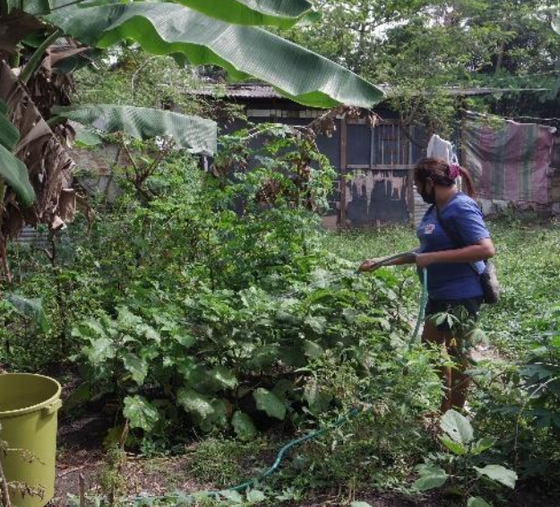Marlyn Tambagan is the president of SAMABOCS-HI (Samahan ng Mamamayan sa Barangay Old Capitol Site – Hydraulic Compound Inc.). SAMABOCS is an organization of the residents of Brgy. OCS in Quezon City. It is also under the ALSA-DILIMAN, an alliance of organizations in Brgy. UP Campus that prepares for the most anticipated Big One. Most of their community is not cemented and has fertile soil that is good for farming. There are only some cemented parts that solely act as a pathway to their houses.
Since the Duterte administration declared a lockdown last March 2021, members of SAMABOCS lost their jobs. 70% of their members were not able to go to their jobs because of the pandemic. According to Nanay Marlyn, “At that time, other residents of their community join [the organization] because they asked for food. like I said before, Urban farming is a huge thing, not just for me but for the whole organization (and community).” The urban farming project was started last 2015 by the barangay but it wasn’t sustained. Amid the pandemic, they started to see how important and helpful urban farming is to the survival of their community.
However, during a more than a year lockdown, the organization exhausted all the crops from their urban farming. Due to the lockdown, the local Municipal of Quezon City was not able to provide seeds for them to plant and use. CREST’s Survivor Community Led Response Webinar and Trainings helped a lot in rebuilding and sustaining their urban farming. CREST visited the area and gave out a registration form for the residents of the community of SAMABOCS. Then by September, they went back and gave relief to the residents. The monetary donation was used by others as an investment to build a small eatery business that they sell through social media because of the restrictions. Also, they allocated money to fund the expenses of their organization, such as buying seeds to plant for their urban farming. As stated by NanayMarlyn, “I used the money to buy seeds so that we can have a continuous harvest. When the city was closed, we don’t have any place to go [to get some seeds] that’s why I used the money to buy seeds. That’s where the money goes. So somehow, we used it so that our farm will continue thus we can get food from it, and if have extra we sold it in the market.”
After the relief drive, CREST interviewed SAMABOCS, that is when SAMABOCS started to attend the online activities that CREST organized. The last activity that they were able to attend was the face-to-face seminar for ‘Advocacy and Network Training’ and ‘Resource Generation Training’. Nanay Marlyn was able to send three of their members and part of their committee. As per Nanay Marlyn, “I was focused on the training, there I saw their pictures. I saw that it was good and at least, some of my people were included in the training that’s why whatever they learn here they can also share it with other people. We have a preparation plan when the Big One arrives, especially that three of our members have learned a lot. In our meetings, we need to share [what we have learned] not just within us officers but with all the members during our monthly meeting. They will share [what they have learned] so that we can make plans on what we are going to do [in the future].”
At first, SAMABOCS was not very active in attending online webinars but because CREST didn’t give up contacting them, they suddenly became active in attending. SAMABOCS learned a lot from the activities, they gain new techniques in planning and gained a new perspective in sustaining urban farming. They realized the need for a comprehensive and concrete plan. Now, SAMABOCS has a systematic means in their urban farming, every parcel of land, 5 persons are tasked to manage it. When harvest season comes, they will benefit from their crops then sell the surplus crops in the market. 50% of the earnings will go to the organization and the other 50% will be divided into the group that managed it.
Marlyn wants is to expand their knowledge in SAMABOC-HI so that many residences will benefit from their urban farming. They already build their connections with other institutions to seek help, other than their collective efforts in developing and sustaining urban farming.
“This pandemic, CREST was the one who gave us help. It is such a huge thing for us. And because of their help, we are encouraged to develop our urban farming. They were the first organization that helped us. They were the ones who persevered to help us rebuild ourselves amid pandemic.”

